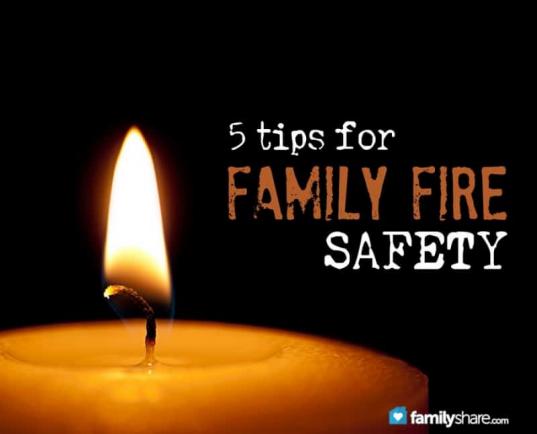
It's a nightmare situation: you wake up in the middle of the night to the smell of smoke. It's thick in the air and when you open your bedroom door, more wafts in and you can detect a faint orange glow at the end of the hall. Your first thoughts are for your children. And as panic begins to take over, you wish you'd been more diligent in educating your family about fire.
Fire safety isn't something everyone automatically knows. It has to be taught, and the sooner the better. When your children are young, you should teach them about how to be safe around fire and what to do in emergency situations. The following are some ideas on how to get your family's fire education started.
Don't scare the kids
If you're too heavy-handed in your fire education efforts you may simply make your children terrified of fire and less able to handle a fire emergency. Teach them that fire can be used for good things, like to keep the family warm, to cook things or to light up the dark. As you teach them about the benefits, you can also teach about the dangers.
Check the smoke alarms
. Most agencies suggest you check your smoke alarms bi-annually. If it helps you remember, check them every time the time changes. Make sure your children are present and attentive as you check the alarms. This way they can recognize the sound when they hear it. Explain to them that when they hear that sound, it means they need to get out of the house quickly. Children who have learned their numbers can be taught to dial 911.
Plan the escape route
. Children over 5 are capable of understanding and remembering fire escape routes. This is the age they enter kindergarten and they'll experience fire drills at school, which will prepare them for you to teach about your home fire escapes. Choose a distinctive landmark, like the mailbox or a neighbor's tree, as the place where everyone should meet in case of a fire.
Practice!
Don't just teach your kids the escape route and leave it at that. Practice the route once a month so that it becomes automatic. You can try different scenarios: What if you are in bed? What if the front door is blocked? What if mommy and daddy aren't home?
Supervise fire interactions
Let your children have some safe, supervised time around fire. If you like to light scented candles, place one on the counter and point it out to your children. Explain that they should not touch it under any circumstances but they can enjoy its sweet aroma. Do not allow teenagers to have candles in their rooms. On campouts, show your children the campfire and let them know they shouldn't get too close to it or light things on fire.
When your family is fire-safety educated you will not only have more peace of mind, you may actually prevent a future catastrophe. Your worst nightmare need never come true.

